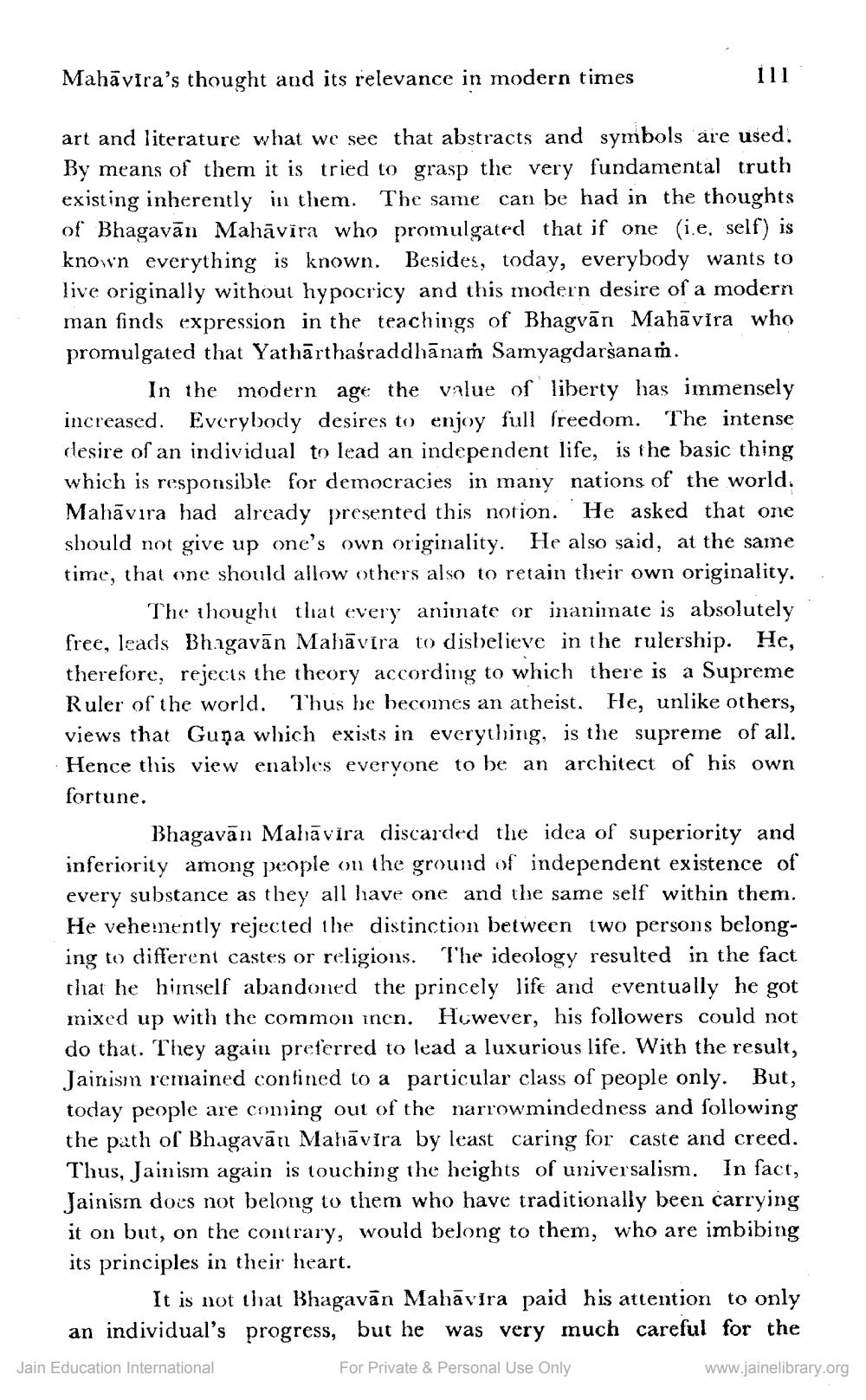________________
Mahāvira's thought and its relevance in modern times
111
art and literature what we see that abstracts and symbols are used. By means of them it is tried to grasp the very fundamental truth existing inherently in them. The same can be had in the thoughts of Bhagavān Mahāvīra who promulgated that if one (ie, self) is known everything is known. Besides, today, everybody wants to live originally without hypocricy and this modern desire of a modern man finds expression in the teachings of Bhagvān Mahāvīra who promulgated that Yathārthaśraddhānaṁ Samyagdaršanaṁ.
In the modern age the value of liberty has immensely increased. Everybody desires to enjoy full freedom. The intense desire of an individual to lead an independent life, is the basic thing which is responsible for democracies in many nations of the world. Mahāvira had already presented this notion. He asked that one should not give up one's own originality. He also said, at the same time, that one should allow others also to retain their own originality.
The thought that every animate or inanimate is absolutely free, leads Bhagavān Malāvīra to disbelieve in the rulership. He, therefore, rejects the theory according to which there is a Supreme Ruler of the world. Thus he becomes an atheist. He, unlike others, views that Guņa which exists in everything, is the supreme of all. Hence this view enables everyone to be an architect of his own fortune.
Bhagavān Mahā vīra discarded the idea of superiority and inferiority among people on the ground of independent existence of every substance as they all have one and the same self within them. He vehe.nently rejected the distinction between two persons belonging to different castes or religions. The ideology resulted in the fact that he himself abandoned the princely life and eventually he got mixed up with the common inen. However, his followers could not do that. They again preferred to lead a luxurious life. With the result, Jainism remained confined to a particular class of people only. But, today people are coming out of the narrowmindedness and following the path of Bhagavāni Malāvira by least caring for caste and creed. Thus, Jainism again is touching the heights of universalism. In fact, Jainism does not belong to them who have traditionally been carrying it on but, on the contrary, would belong to them, who are imbibing its principles in their heart.
It is not that Bhagavān Mahāvīra paid his attention to only an individual's progress, but he was very much careful for the Jain Education International For Private & Personal Use Only
www.jainelibrary.org




